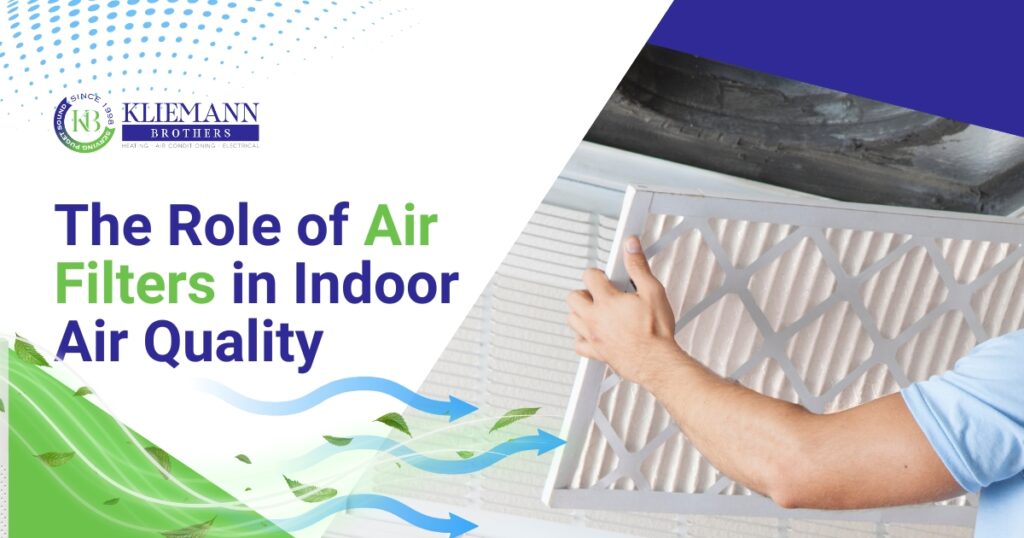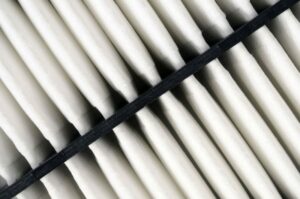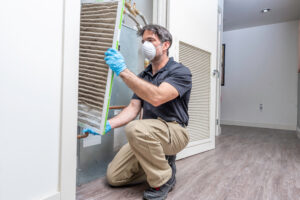The Role of Air Filters in Indoor Air Quality

The outdoor air quality in Tacoma, WA, is constantly changing, but it’s just as important to monitor the air quality inside your home, too. One key component that impacts your home’s indoor air quality is the type of air filters you use and how often you change them. The experts at Kliemann Bros Heating, Air Conditioning & Electrical have some helpful information about the role of air filters and indoor air quality, and how your air filter can impact your health and well-being.

Why Indoor Air Quality Matters for Your Health
Indoor air quality impacts your health in several ways. When pollen, pet dander, bacteria, dust, and other airborne particles are present in the air, you and your family breathe them in, and they could cause a variety of health issues. Poor indoor air quality can exacerbate upper respiratory conditions like asthma and allergies, making your symptoms worse. When the air inside your home is clean, you’ll breathe easier and experience fewer of these uncomfortable symptoms.
The short-term effects of poor indoor air quality include irritated or itchy eyes, a runny nose, headaches, mild coughing, and fatigue. Long-term effects are much more significant and may include the development of respiratory diseases like emphysema, asthma, and bronchitis. Children, the elderly, and those with pre-existing conditions are the most vulnerable to these health impacts.
How Air Filters Work in Your HVAC System
One of the biggest benefits of clean air filters is that they improve indoor air quality. These filters are affordable, easy to replace, and work to trap and remove indoor air pollutants. Here’s how air filters work in your HVAC system to keep you healthy and safe:
- Most HVAC air filters are made of materials like pleated paper, fiberglass, or an electrostatic material that acts like a sieve and captures larger particles, including lint, pet hair, and dust.
- Certain types of filters use electrostatic electricity to trap smaller particles such as mold spores, dust mites, or pollen.
- All HVAC air filters provide different levels of filtration indicated by a Minimum Efficiency Reporting Value, or MERV rating, and higher ratings indicate better filtration.
- Not only do clean air filters trap particles for cleaner air, but they also help to keep your HVAC system running smoothly and prolong your system’s lifespan.
Types of Air Filters and What They Catch
There are several different types of HVAC air filters available, so it’s important to know about the best air filters for the home and what they catch. Understanding these different options makes it easier to choose the best filter for you.
- Pleated filters: Made of pleated polyester or cotton fabric, these HVAC filters trap small contaminants like pollen, mold spores, and pet dander.
- Fiberglass filters: These affordable air filters, made of small strands of glass spun together and placed in a metal grate, are a common option for many homeowners. However, they tend to remove only larger particles, such as pet hair, carpet fibers, and some dust.
- HEPA filters: High-efficiency particulate air, or HEPA, filters for HVAC systems are some of the most effective options and can remove up to 99.7% of airborne pollutants, including smoke particles, viruses, pollen, mold, dust and dust mites, bacteria, and pet dander.
- Electrostatic filters: This air filter creates static electricity, which acts as a magnet to trap particles and pollutants like pollen and dust, making it a good allergy relief air filter for those with severe allergies.

Choosing the Right Air Filter for Your Home
To choose the right air filter for your home, start with the size. Different HVAC systems have different-sized sections designated for the air filter, so make sure you write down the correct size before you buy a new air filter. Next, look at the material and the air filter MERV rating to determine which one will filter out the airborne particles that concern you the most. HEPA and electrostatic filters are ideal if you or someone in your household suffers from allergies.
Understanding MERV Ratings and Filtration Efficiency
Each air filter’s MERV rating indicates its effectiveness and efficiency. Here are the different MERV ratings and what they mean:
- MERV 8: This lower MERV rating works well for general filtration, like removing dust or pollen.
- MERV 11: A MERV 11 rating is ideal if you have pets and need to filter out small particles like pet fur and dander.
- MERV 13: If you need to remove smoke, bacteria, and other fine particles, or if you suffer from allergies, choose an air filter with a MERV 13 rating.
- MERV 16: Often used in hospitals, this high MERV rating is highly effective but not recommended for home use since it may restrict airflow too much.
How Often To Replace Your HVAC Filter
So, how often should you replace HVAC air filters? Ideally, you should replace your air filter as soon as it becomes dirty or clogged. Signs of a dirty or clogged filter include high energy bills, a reduction in performance, or an increase in dust and other particles inside your home.
Most HVAC air filters should be replaced at least every 30, 60, or 90 days. When in doubt, refer to the manufacturer’s directions, which will tell you how often yours should be replaced.
Air Filters and Energy Efficiency: What’s the Connection?
Air filters and energy efficiency are closely related. When your air filter is blocked, it restricts airflow throughout your HVAC system, which could lead to premature wear and tear and cause your system to work harder to cool or heat your home. When the system works harder, it results in possible premature breakdowns and causes a significant loss of energy efficiency. Changing your air filter regularly not only saves you money, but it also saves your HVAC system from excessive wear and damage.

Trust Kliemann Bros for IAQ Expertise and Filter Replacement Services
The team at Kliemann Bros Heating, Air Conditioning & Electrical is an IAQ expert and trusted HVAC partner. We’re proud to serve our customers in Tacoma, WA, and the surrounding areas. If you’d like to schedule professional air filter recommendations, IAQ solutions, and HVAC maintenance services, contact us today!


